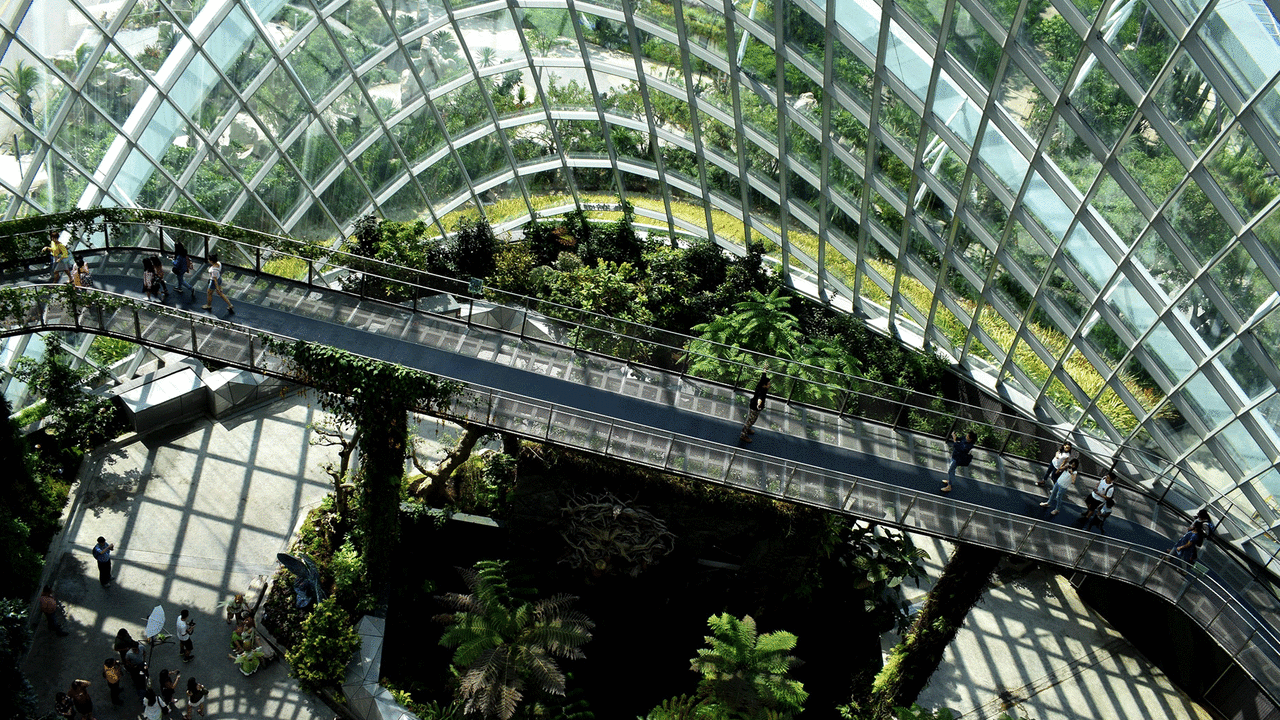
A Waterloo spinoff company is helping businesses balance sustainability with profitability
Amr ElAlfy, first-ever PhD graduate from the School of Environment, Enterprise and Development (SEED), is developing an industry-standardized reporting tool

Amr ElAlfy, first-ever PhD graduate from the School of Environment, Enterprise and Development (SEED), is developing an industry-standardized reporting tool
By Sam Toman Faculty of EnvironmentA Waterloo spinoff company is helping businesses balance sustainability with profitability by using artificial intelligence to mine companies’ documents, reports and even social media posts to quantify their impact on social issues like gender equity and the environment.

Amr ElAlfy — the first-ever PhD graduate from the School of Environment, Enterprise and Development (SEED), is developing an industry-standardized reporting tool to measure exactly how effective organizations have been in fulfilling their social and environmental responsibility.
The AI technology can, for example, comb through more than a million tweets related to the United Nations’ Social Development Goals (SDGs). “This helps us find the signal through the noise and accurately pick out sustainability achievements and opportunities corporations may have missed,” says ElAlfy, co-founder of Synergy Sustainability & Development Group.
“Around the time of the Great Depression there was an urgency to standardize financial reporting tools to prevent future chaos and collapse of financial markets,” says the former corporate executive. “To prevent social and environmental collapse, we need the same kind of widely-accepted reporting.”
Originally from Egypt, now living in Waterloo, ElAlfy knows how corporations want to see reporting. He spent close to a decade working as a manager and analyst for Nestle, 3M and other global concerns operating in the Middle East North Africa region (MENA).
His PhD dissertation “Redefining Strategic Corporate Social Responsibility (CSR) in the Sustainable Development Goals (SDGs) World,” explored the applications of artificial intelligence and machine learning in sustainability. Co-supervised by Olaf Weber and Sean Geobey, ElAlfy applied social media analytics tools to examine “how” and “why” corporations report on their CSR strategies to enhance their operational legitimacy.
ElAlfy and Weber also connected to co-found Synergy Group, a startup combining academic research and industrial knowledge with best practices in big data architecture and artificial intelligence to measure sustainability performance that is seamlessly integrated with financial performance reporting.
Synergy co-founder and Advisory Board member Olaf Weber will be featured as part of the Waterloo Innovation Summit on November 30. Weber is also a University Research Chair in Sustainable Finance, and will join the panel to discuss how policy, entrepreneurship and innovation come together to power a sustainable, green future.
Corporate social, environmental and economic responsibility practices have gained more interest in the past decade and the pressure for corporations to commit to social and environmental concerns has only been fueled by the COVID-19 global pandemic.
ElAlfy saw first-hand how corporate social responsibility can boost bottom lines and took a chance on SEED’s new PhD program. “I can’t say enough good things about SEED,” he says. “What is unique to me is how everyone collaborates and lends their expertise to each other. Working across disciplines is how the best ideas are made.”
SEED’s transdisciplinary approach to research is reflected in Synergy Group’s core business. Sustainability is more than just the physical environment, it includes gender equality, education, peace, justice and other social variables that are challenging to quantify.
“It’s naive to assume that companies can detach their financial performance from any sustainability reporting. Companies are here to make money,” ElAfly says. “But decades of data have shown that being more sustainable is better for the bottom line. We started Synergy Group to help business owners and investors see that return clearly.”

Read more
How rethinking our economy can save the world

Read more
Bringing together foundational science and effective implementation to tackle big problems

Read more
How Velocity and Concept are supporting cleantech entrepreneurship
The University of Waterloo acknowledges that much of our work takes place on the traditional territory of the Neutral, Anishinaabeg, and Haudenosaunee peoples. Our main campus is situated on the Haldimand Tract, the land granted to the Six Nations that includes six miles on each side of the Grand River. Our active work toward reconciliation takes place across our campuses through research, learning, teaching, and community building, and is co-ordinated within the Office of Indigenous Relations.